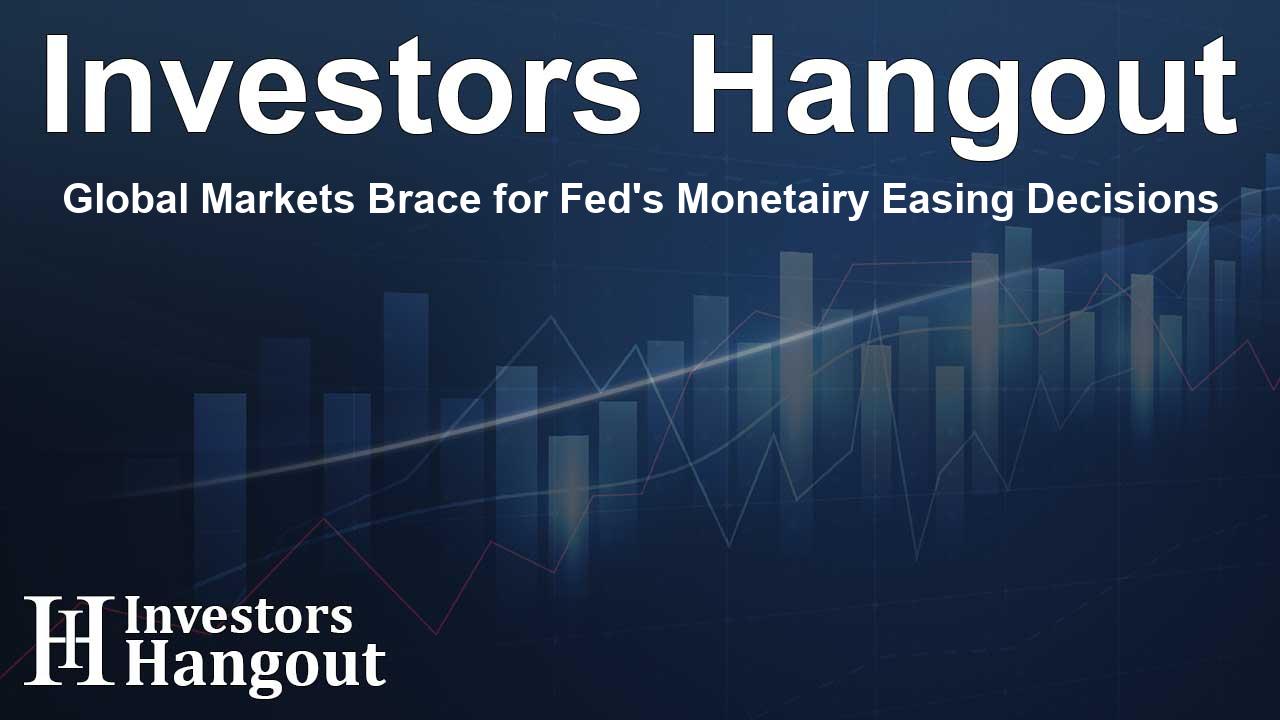Global Markets Brace for Fed's Monetairy Easing Decisions

Global Markets Brace for Federal Easing Decisions
The global economy is gearing up for a significant shift as the United States begins its monetary easing cycle. This move comes at a time when central banks from Europe to Asia are reassessing their own strategies amid a backdrop of uncertain market conditions.
The Federal Reserve's Impact on the Global Economy
The Federal Reserve's expected decision to lower interest rates represents a crucial juncture in the financial landscape. Traders are eagerly awaiting this announcement, speculating whether a modest quarter-point cut will be enough to boost the struggling economy, or if a steeper half-point cut is necessary.
The consequences of the Fed's decisions extend well beyond American borders. Global economies are watching closely, with several central banks in the Group of 20 poised to modify their policies in response. For example, Brazil's central bank is set to embark on its first tightening cycle in over three years, underscoring a worldwide trend toward careful adjustment in the face of various economic challenges.
Central Banks Prepared to Respond
Alongside the Fed, essential policy discussions are anticipated from the Bank of Japan, which recently increased borrowing costs, sending ripples through global markets. New data from Japan indicates a critical need to monitor potential future rate hikes as economists ponder how these decisions could influence the yen and international trade.
Consumer Trends and Economic Indicators
As central banks ready themselves for their meetings, the spotlight shifts to consumer demand. Recent reports suggest that the retail landscape is tightening, shaped by reduced consumer spending and elevated borrowing costs. However, spending trends outside the automobile sector hint at some resilience, offering a flicker of hope for economic stability.
In North America, new housing starts are anticipated to increase, indicating a possible recovery in the residential market after significant declines earlier. Yet, the National Association of Realtors warns of continued struggles in existing home sales, which pose challenges for both buyers and sellers. This mixed data reflects the complexities of navigating economic recovery in such a volatile climate.
International Perspective
Meanwhile, in Asia, attention is turning toward potential shifts in China’s monetary policy. With signs of deflation creeping into its economy, analysts expect forthcoming official announcements that could further sway global market dynamics.
Central Banks Under the Microscope
On various continents, central banks are gearing up to unveil their decisions. The next moves of the Bank of England are under heavy speculation, particularly regarding its pace of unwinding its bond portfolio. Similarly, central banks in Norway and South Africa are also recalibrating their positions, with the possibility of rate cuts emerging as economic conditions evolve.
Moreover, central banks in emerging markets, particularly in Latin America, are confronting inflationary pressures that could trigger policy shifts. Brazil's economy, grappling with severe inflation, is a focal point, as expectations mount that its central bank will soon commence a tightening cycle. This could herald broader adjustments in monetary policy across the region.
Looking Ahead
As we navigate this crucial period, uncertainty remains the only constant. Investors face the challenge of attempting to predict the implications of central bank meetings while forecasting market conditions. The outcomes of these discussions and any ensuing policy shifts will likely have significant repercussions for equity markets and bond yields globally.
In summary, everyone is paying close attention to the upcoming decisions from the Federal Reserve, the Bank of Japan, the Bank of England, and others, as their resolutions will resonate throughout global financial systems. Grasping the nuanced reactions of these institutions to changing economic data will be essential for investors attempting to navigate this intricate monetary landscape.
Frequently Asked Questions
What role do the Federal Reserve's interest rate decisions play in the economy?
The Fed's interest rates directly affect borrowing costs, which in turn influence consumer spending and investment decisions, leading to broader economic effects.
How do central banks determine when to cut rates?
Central banks look at a range of economic indicators, including inflation trends, employment statistics, and consumer spending behavior, to decide the right timing for rate cuts.
What effects do decisions from the Bank of Japan have on global markets?
As a major financial institution, the Bank of Japan's policies can sway currency exchange rates and impact international trade, significantly affecting global market dynamics.
Why are emerging markets, such as Brazil and South Africa, changing their monetary policies?
Emerging markets often encounter rapid inflation changes and shifting economic conditions, compelling them to adjust monetary policies to maintain financial stability.
How can investors prepare for possible market changes?
Investors should keep abreast of central bank announcements, track economic indicators diligently, and consider diversifying their portfolios to manage risks associated with market fluctuations.
About The Author
Contact Hannah Lewis privately here. Or send an email with ATTN: Hannah Lewis as the subject to contact@investorshangout.com.
About Investors Hangout
Investors Hangout is a leading online stock forum for financial discussion and learning, offering a wide range of free tools and resources. It draws in traders of all levels, who exchange market knowledge, investigate trading tactics, and keep an eye on industry developments in real time. Featuring financial articles, stock message boards, quotes, charts, company profiles, and live news updates. Through cooperative learning and a wealth of informational resources, it helps users from novices creating their first portfolios to experts honing their techniques. Join Investors Hangout today: https://investorshangout.com/
The content of this article is based on factual, publicly available information and does not represent legal, financial, or investment advice. Investors Hangout does not offer financial advice, and the author is not a licensed financial advisor. Consult a qualified advisor before making any financial or investment decisions based on this article. This article should not be considered advice to purchase, sell, or hold any securities or other investments. If any of the material provided here is inaccurate, please contact us for corrections.
